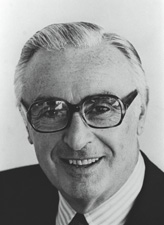A Quote by Stephen King
But there's one thing I'm sure about. An opening line should invite the reader to begin the story. It should say: Listen. Come in here. You want to know about this.
Related Quotes
There are all sorts of theories and ideas about what constitutes a good opening line. It's tricky thing, and tough to talk about because I don't think conceptually while I work on a first draft -- I just write. To get scientific about it is a little like trying to catch moonbeams in a jar. But there's one thing I'm sure about. An opening line should invite the reader to begin the story. It should say: Listen. Come in here. You want to know about this.
It's so funny being a Christian musician. It always scares me when people think so highly of Christian music, Contemporary Christian music especially. Because I kinda go, I know a lot of us, and we don't know jack about anything. Not that I don't want you to buy our records and come to our concerts. I sure do. But you should come for entertainment. If you really want spiritual nourishment, you should go to church... you should read the Scriptures.
Your opening should give the reader a person to focus on. In a short story, this person should turn up almost immediately; he should be integral to the story's main action; he should be an individual, not just a type. In a novel, the main character may take longer to appear: Anna Karenina doesn't show up in her own novel until chapter eighteen.
Character drives the story, and the story drives the book. I don't think about where the action should go, or how much there should be, until it's required by the characters. When I find myself adding conflict just because I'm afraid that the reader might get bored, I know I've taken a wrong turn somewhere.
I think the American people would be compassionate and practical. But we need to be talking about assimilation as well, something that is politically incorrect, I know, to say that people should learn English, should learn American exceptionalism, shouldn't come here to use our freedoms to undermine the freedoms we give to everybody. But there's nothing wrong with saying people who want to come here should want to be Americans.
I would say plotting is the most difficult thing for me. Characterization is only hard because sometimes I feel I get so interested in it that I want to talk too much about the characters and that slows the story down. So I say, "Hey, people want to find out what's going to happen next, they don't want to listen to you spout off about this or that person." But I think even the bad guy deserves to tell his side of the story.
Dear John, There's so much I want to say to you, but I'm not sure where I should begin. Should I start by telling you that I love you? Or that the days I've spent with you have been the happiest in my life? Or that in the short time I've known you, I've come to believe that we were meant to be together? I could say all those things and all would be true, but as I reread them, all I can think is that I wish I were with you now, holding your hand and watching your elusive smile.
I want to write about the great and powerful thing that listening is. And how we forget it. And how we don't listen to our children, or those we love. And least of all - which is so important, too - to those we do not love. But we should. Because listening is a magnetic and strange thing, a creative force...When we are listened to, it creates us, makes us unfold and expand. Ideas actually begin to grow within us and come to life.
You didn't plan to write a story; it just happened. Well, it could be argued that the next thing you should do is find a hole to dig. Right? So you start digging a hole and then somebody brings a body along and puts it in. That's what a story must feel like to me. It's not that you say, "I want to write a story about a gravedigger." But you're walking along and "I don't know what I'm doing here in this story,' and - boop! a shovel. "Oh, interesting. Ok, what does one do with a shovel? Digs a hole. Why? I don't know yet. Dig the hole! Oh, look a body."
































